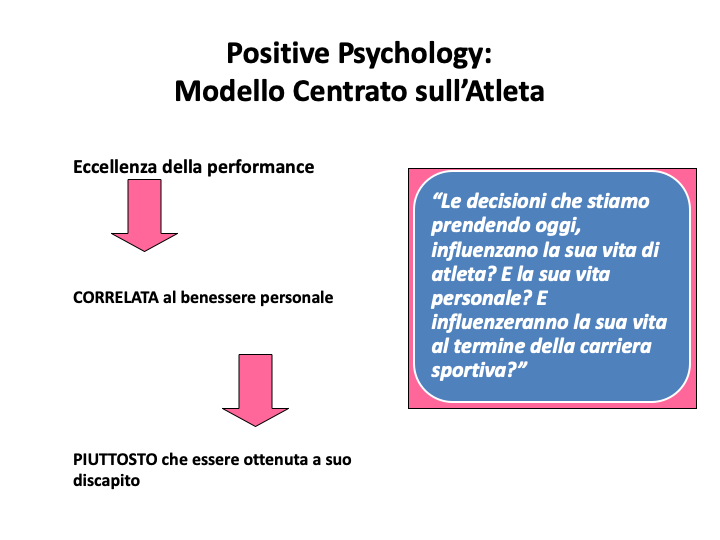The issue of values is an unavoidable topic in sports. As a consultant in high-level sport, I am aware that my role is to support athletes and teams to improve their performances, in essence to win more often. It is equally true that this goal must be achieved in a working environment in which success must be pursued through adherence to a second, equally overriding goal of promoting individual and team well-being.
In the absence of this combination of well-being and the desire to succeed, training can become a dangerous situation for the lives of young people, as decisions are made that favor a purely physical and biomechanical conception of the athlete with total forgetfulness of the psycho-social component. Sport has already passed, without finding definitive solutions in favor of the athlete, through the tragedy of doping, drug and alcohol abuse, through rather widespread stories of sexual abuse and the numerous cases of psychopathology that have affected many champions and not only them. Now the scandal of gymnastics girls being psychologically abused because they were forced to obey a system of living contrary to that which promotes their health is another example of how bad sport can be when it is driven in the absence of a value system that puts psychological health and well-being first.
Who should the parents of these girls listen to? Those who impose daily weight measurement and who humiliate girls with shameful words in order to win a medal or their daughters who denounce the unsustainability of this system of living? What is important for families to have a daughter who wins a medal or a daughter who is happy?
These denunciations are good for sport at the absolute level, for one thing because they should prevent this wrong system from continuing over time to the detriment of other female athletes. However, it should also serve to promote a different sports culture in gymnastics by putting the value of the person first. We should not forget that we are talking about little girls and adolescents who live the unrepeatable years of their physical, psychological and social development in an environment where they are dominated by fear, guilt and where they continually feel accused of being inadequate, with words whose use alone should have resulted in the removal of these people from their role of guiding these girls.
Unfortunately, these facts are not an exception because forms of abuse, worldwide, are not new to gymnastics. One need only recall the U.S. gymnastics scandal in which dozens of girls were abused by national team doctor Larry Nassar, as well as that of U.K. gymnastics exposed in a 2022 white paper by Anne Whyte. Stories not unlike the one allegedly experienced in Romania, nearly 50 years ago, by the greatest gymnast of all time, Nadia Comaneci and recounted in a 2021 book by historian Stejarel Olaru on declassified Romanian police documents.
Ongoing investigations will determine the reality of what transpired, the fact remains that complaints and discomfort remain and have undermined the credibility of a system based only on the idea that the only thing that matters is winning.





